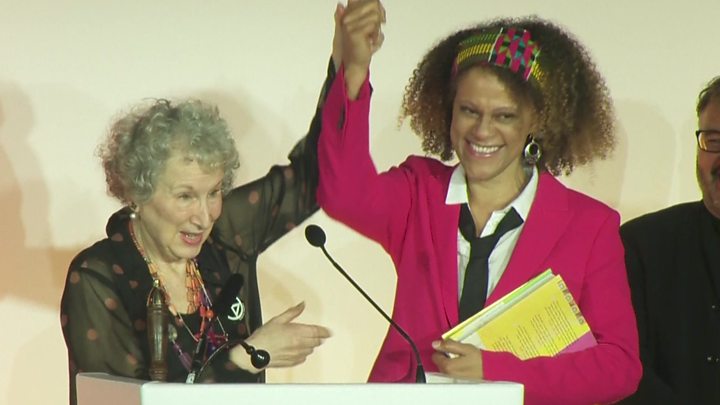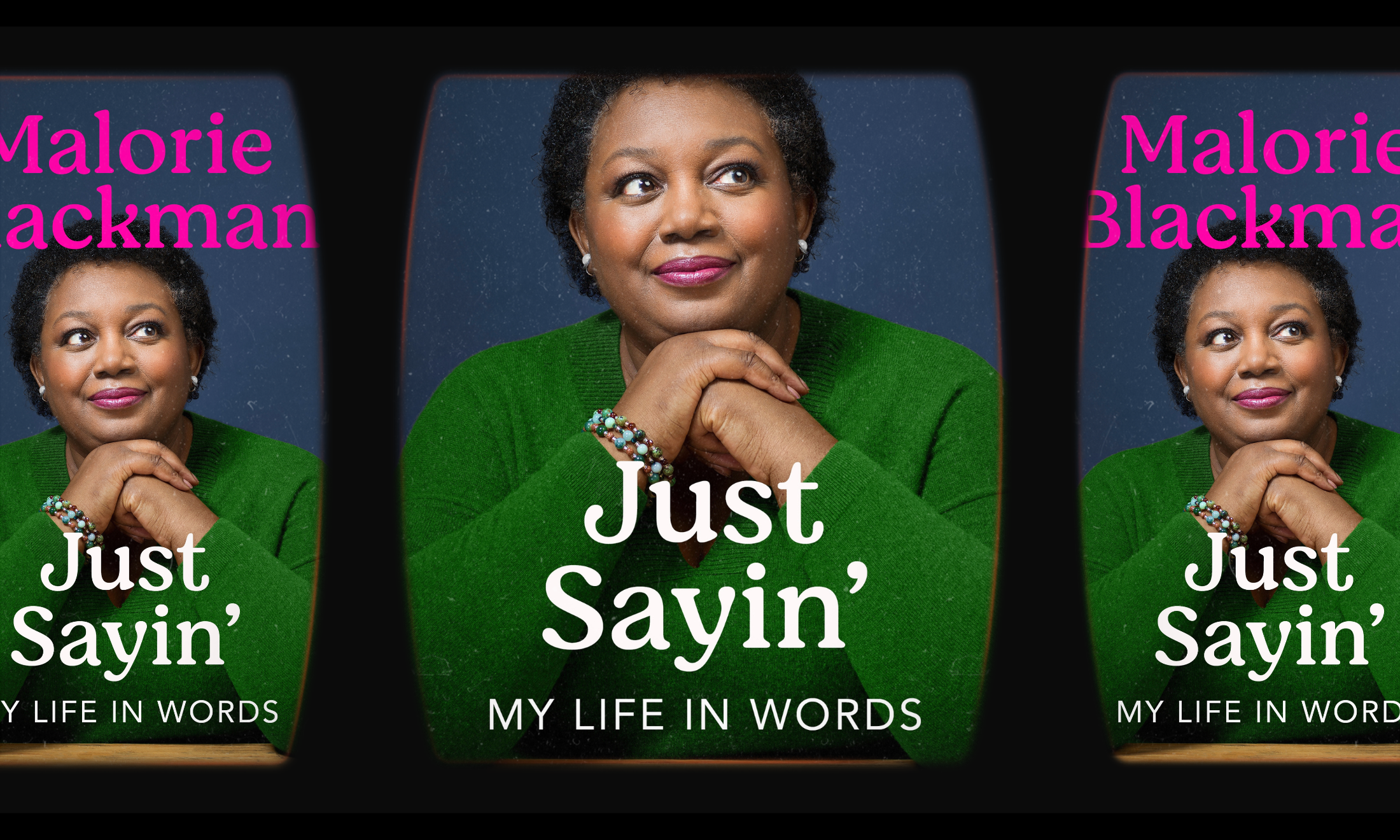
As the first black woman to win the Booker Prize, Bernardine Evaristo deserved to win alone
Sunny Singh
15 Oct 2019
Photography via BBC
Bernardine Evaristo deserved to win the 2019 Booker Prize for her tour de force, Girl, Woman, Other. She also deserved to win it on her own, for a book detailing with exquisite delicacy and resilience what it means to be a black woman in our world. She definitely did not deserve to have to share the prize with a writer whose fictional ethnic cleansing of people of colour remains for the most part unexamined in the first novel, and whose “sequel”, which took the top prize alongside Evaristo’s book, remains a testament to unchecked, unconsidered white women’s privilege.
In The Handmaid’s Tale (1985), Margaret had not only appropriated the lived experiences of women of colour, especially enslaved black women but ruthlessly deployed them with the additional white supremacist lens of the innocence historically attributed to white femininity. Margaret’s dystopia is not that terrible things are done to women, but that the terrible things done to women of colour by white supremacist heteropatriarchy could be also done to white women. The horror of the novel is rooted in imagining white women as vulnerable to the historical harm done by white men – and abetted by white women – to women of colour.
Unsurprisingly, people of colour are cleansed quickly from Margaret’s narrative. Margaret’s storyverse is an alt-right wet dream where white Western society is conveniently albeit forcibly cleansed of the “children of Ham”. Still, in Margaret’s white supremacist dystopia, her protagonist Offred can only conceive of her lived and experienced horror in imperial, Orientalist, and yes, racist terms. With ethnic cleansing and potential genocide as its foundation, there is little surprise that Margaret’s sequel, set in this commercially lucrative universe, replicates all the problems of the first. Racism: check, historical whitewashing: check, misogynoir: check.
“Margaret’s dystopia is not that terrible things are done to women, but that the terrible things done to women of colour could be also done to white women”
There is something deeply ironic and saddening about the fact that such a mediocre white supremacist cisheteropatriarchal fantasy written in less than perfunctory prose is regarded as equal to a subversive, rebellious, challenging narrative about black women in Britain in a style that defies much of what we know and have read in the English language.
And yet, this is not surprising. Apparently, the chair of judges, Peter Florence “refused to give way” on choosing a single winner – a rather telling statement given that he was chairing a jury made up of four women, including two women of colour. He seemingly demanded and was able to push through a decision flouting the prize’s own rules. The fact that he chose to reference Extinction Rebellion – a movement criticised for its adherence to white supremacy – as inspiration for acting to deny the very first black woman writer a Booker win on her own, reveals all too much.
The Booker’s history and processes mean that it has never been the prize for great books but rather for those that receive the most backing. This is just one of the many reasons that no black woman writer has ever won the prize till Evaristo. Given the extraordinary output by eligible black women writers like Jackie Kay, Laura Fish and Aminatta Forna in the past half century, it’s a travesty that only four have ever made the shortlist.
And it is even less of a surprise albeit infuriating that the Guardian ran a headline deeming Evaristo “an obscure choice”, never mind her seven acclaimed previous books, 20 years of publishing and many other honours and achievements.
2019 was a potentially revolutionary year for the Booker: an extraordinary book by a writer with an incredible track record. Instead, a powerful white man’s refusal to accept the prize’s own rules and a damaging insistence on pushing his own meagre agenda means even a first for the Booker has not gone untainted. The lesson from Booker in 2019 was that white supremacy could still not bear to reward a prodigious black woman writer a win of her own.









